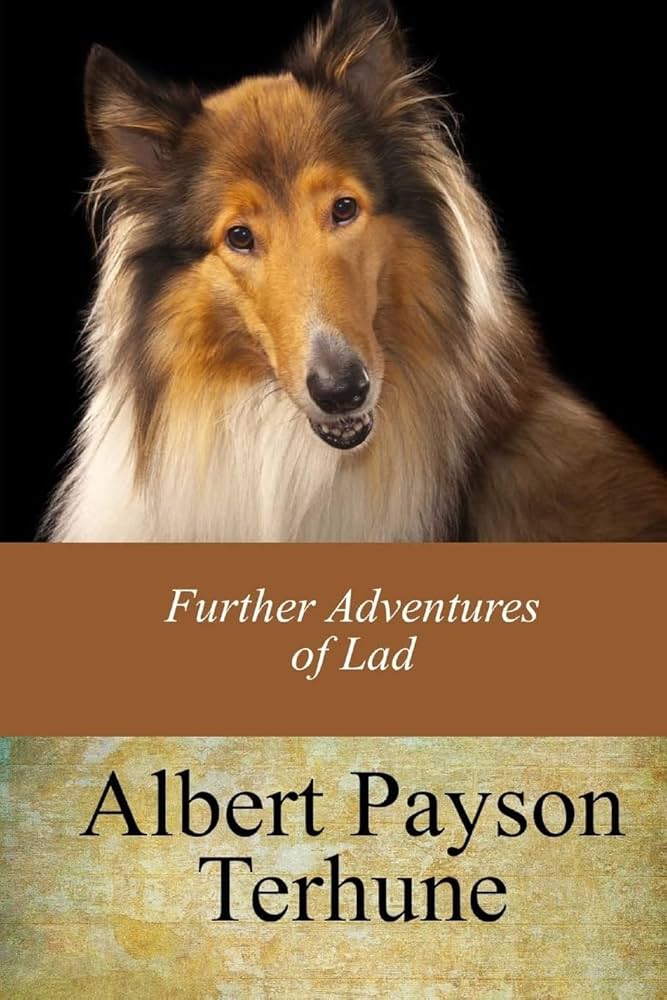Chapter VIII: In Strange Company
byChapter VIII: In Strange Company begins not with excitement, but with a peaceful journey into the quiet beauty of the Ramapo Mountains. Lad accompanies the Mistress and Master on a camping trip, eager and alert, even in his older years. The serenity of the wild does not dull his senses—it sharpens them. As the family prepares to leave camp, an unintentional oversight leaves Lad tied near a tree, overlooked amid the bustle. He waits calmly, trusting that they will return, his gaze steady on the trail. Hours pass, and the air grows uneasy with the scent of danger on the wind.
From a distant ridge, smoke curls upward, dark and fast-moving, pushed by dry heat and strong gusts. Animals—silent witnesses to the mountain’s shift—begin to flee past Lad in desperate herds, driven by the fire’s cruel approach. Squirrels, deer, and even foxes stream toward the lake, their panic barely contained. Among them appears a black bear, not in pursuit, but in escape—a creature Lad had encountered before under far different terms. Now, both bound by survival, they share an unspoken truce. Lad, recognizing the threat, chews through his rope, pain and age forgotten in his need to move. With determined strides, he follows the path carved by instinct and flame.
Reaching the lake’s edge, Lad plunges in, joining the wildlife already wading chest-deep in water, their eyes turned toward the burning trees. His usual vigilance softens, not out of fear, but acceptance—of the strange company, of the moment, of nature’s uncontrollable force. The bear lingers nearby, and Lad does not growl nor retreat. They are not enemies here, just creatures suspended in a shared crisis. The moment holds a strange peace. Survival has stripped away boundaries, leaving only breath, fire, and the calm coolness of the lake.
Meanwhile, far from the fireline, the Mistress and Master realize Lad is missing. Panic rises, not from the loss of a pet, but the absence of a friend. Night falls quickly as they return to the camp, met by the smoke and scorched earth left behind. With lantern in hand and voice cracking with emotion, the Mistress whistles into the dark, a sound Lad would know anywhere. From beyond the blackened trail, his ears catch the familiar note. With a leap through ash and flame-charred debris, Lad bounds forward, body aching but spirit untouched.
He runs not because he must, but because love draws him in a straight, unwavering line. Through branches scorched at the tips and soil still warm from the blaze, he finds them—his people—crying out for him as the fire’s glow dims in the distance. Their reunion is not loud. It’s in the way the Mistress sinks to her knees and wraps him in trembling arms. It’s in the Master’s silent touch along Lad’s back, checking for burns, finding none. Lad wags his tail not for thanks, but for recognition. He had found his way home.
What remains after the fire is not just relief, but reverence. The family has seen their collie tested by nature itself and found that nothing—not age, not fear, not even flame—could dull the edge of his loyalty. Lad’s place in their lives, already revered, is deepened by this trial. He did not flee; he endured. He did not bark for help; he acted. His instincts carried him, but it was love that brought him back.
In this chapter, the wilderness becomes a stage for courage and connection. The bear, once a symbol of threat, becomes a companion in crisis. The forest, once a place of rest, becomes a trial. And Lad, once a noble pet, emerges once again as something more: a guardian, a survivor, and a bridge between the wild and the home. In strange company, Lad remained true to himself—unshaken, unyielding, and unforgettable.


